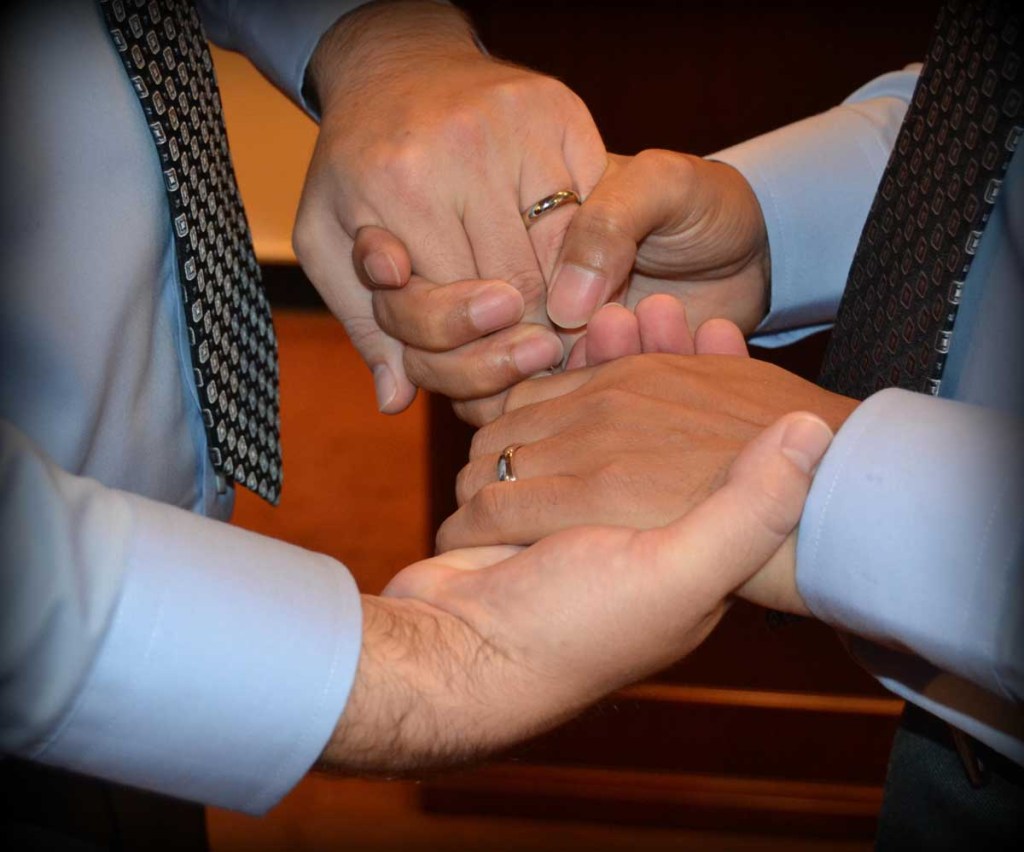Wedding vendors slow to see uptick from Oklahoma same-sex marriages
Published 2:00 pm Friday, December 5, 2014

- Same-sex marriage
OKLAHOMA CITY — Camden Chitwood’s wedding and floral business has thrived since same-sex marriage became legal in Oklahoma two months ago.
The owner of Emerson Events said she’s booked four same-sex ceremonies and receptions between now and May. Not a week goes by that she doesn’t hear from another LGBT couple, many of whom dream of formalizing a longtime relationship.
Three of the couples that Chitwood is helping have been together more than 15 years.
“I’m thrilled,” she said. “Not even for the money. I’m just happy they can finally have equal rights. It’s very touching to be involved in that planning process when they’ve been together for so long.”
Some wedding vendors in Oklahoma are less enthusiastic about equality as they are new sources of revenue, Chitwood admits.
And for many in the wedding business — from drivers of luxury cars to bakers to those who offer legal services — business from the lesbian, gay, bisexual and transgender community has built only slowly since a U.S. Supreme Court decision in October effectively made same-sex unions legal in Oklahoma and several other states.
The weddings represent a welcome infusion into what’s already a big business. Straight couples in the state already spend an average of $23,112 on a wedding, according to an analysis by the online consumer finance site NerdWallet.com.
Using a complex formula, the website estimates that legalized same-sex marriage will pump an additional $32.8 million per year into Oklahoma’s economy, starting in the next year or two. (This assumes that same-sex marriage will become legal in all 50 states, so that couples from elsewhere don’t travel to Oklahoma to tie the knot. Currently same-sex marriage is legal in more than 30 states, including part of Missouri.)
“For business reasons, we’re excited about it because it opens up a new market, and we’re also excited because it will allow people to marry in their home state,” said Danielle Hanson, a wedding planner and co-owner of Sue and Lou Events.
In past year, she said, her business has planned a reception for a same-sex couple that married in another state but returned home for a reception with friends and family.
“I think the general feeling among most of the vendors we work with is, ‘It’s about time,’” Hanson said.
But business hasn’t picked up quickly.
Sue and Lou Events hasn’t booked a single same-sex wedding since it became legal in Oklahoma, and Hanson said they’ve only heard from one couple seeking information.
It’s a similar story for Amanda Sikich, an Oklahoma City wedding planner. The owner of Planned 2 Perfection said she and other industry professionals spent more than a year readying for the day when same-sex marriage would become legal.
Many in the business shared a sense of excitement when the day arrived, said Sikich, both for the opportunity it gave same-sex couples and for the boost it promised for businesses.
But bookings haven’t followed that excitement.
“We were expecting the phone to ring, but it has not, so I’m a little shocked by it,” she said.
Some of that reflects who’s getting married. Rather than plan elaborate weddings, many same-sex couples have opted for no-frills ceremonies, Sikich said, “because they’ve been waiting so long” and just want to make their unions legal.
Scott J. Hamilton, executive director of the Cimarron Alliance, an LGBT advocacy group, noted that many weddings — including ones he’s officiated — have been small gatherings. Couples who’ve been together 20, 30 or even 50 years don’t feel a need for a “big wedding with all the trimmings,” he said.
“For them it was just important to make it official,” Hamilton said. “Once the idea of the newness takes away the need for immediacy, I think people will start planning out way in advance, the same way straight couples have done for a long time.”
Local clerks are not tracking how many same-sex couples receive marriage licenses, so it’s unknown how many weddings have taken place thus far.
Even though same-sex marriage is now legal, Hamilton predicted that the Legislature in the coming year will play a large role in deciding its future — and just how much business in the state benefit.
“Punitive laws” proposed against the LGBT community — such as those giving employers more room to fire employees due to sexual orientation — could dissuade same-sex couples from spending on big ceremonies and receptions, he said.
“Ultimately equality comes down to a matter of economics,” he said. “When people are comfortable where they live and being themselves, they will continue to live there. You can’t just look at the cost of doing a wedding; the economic impact includes new companies coming to Oklahoma to grow their businesses.”
Hamilton said he also fears that LGBT couples will face resistance from wedding vendors unwilling to help them.
Chitwood said that’s already happened to one set of her clients. The couple tried to plan a reception to celebrate their nuptials — before same-sex marriage became legal in October — and were rejected by two venues.
“They did not have a pleasant experience at all,” she said. “They had two venues actually hang up on them. They said it was bad business to promote that.”
Chitwood said those vendors and others are reportedly reconsidering because those decisions might cost them business — not just among same-sex couples but among straight ones who support equal rights.
“I think for the majority of Oklahoma City vendors, I feel like most of them are pretty open and open-minded,” she said.




